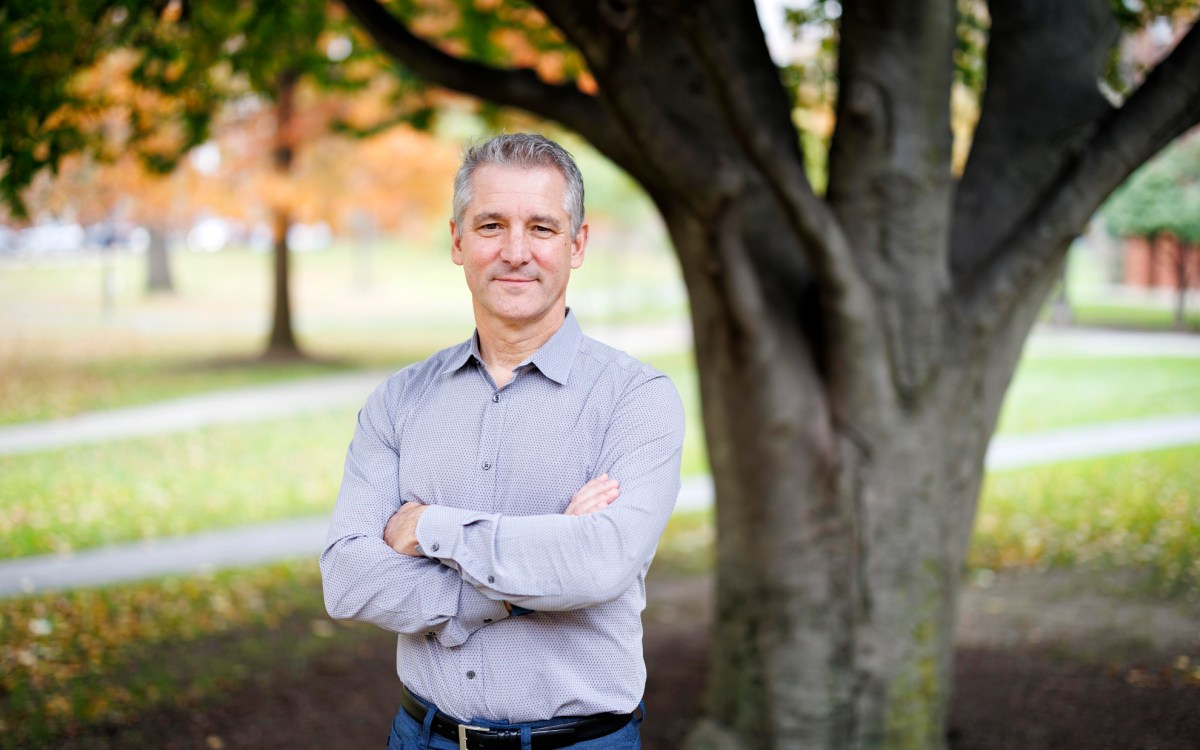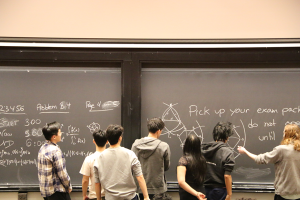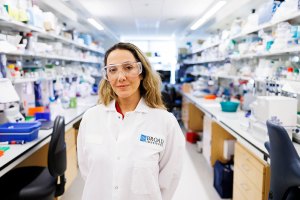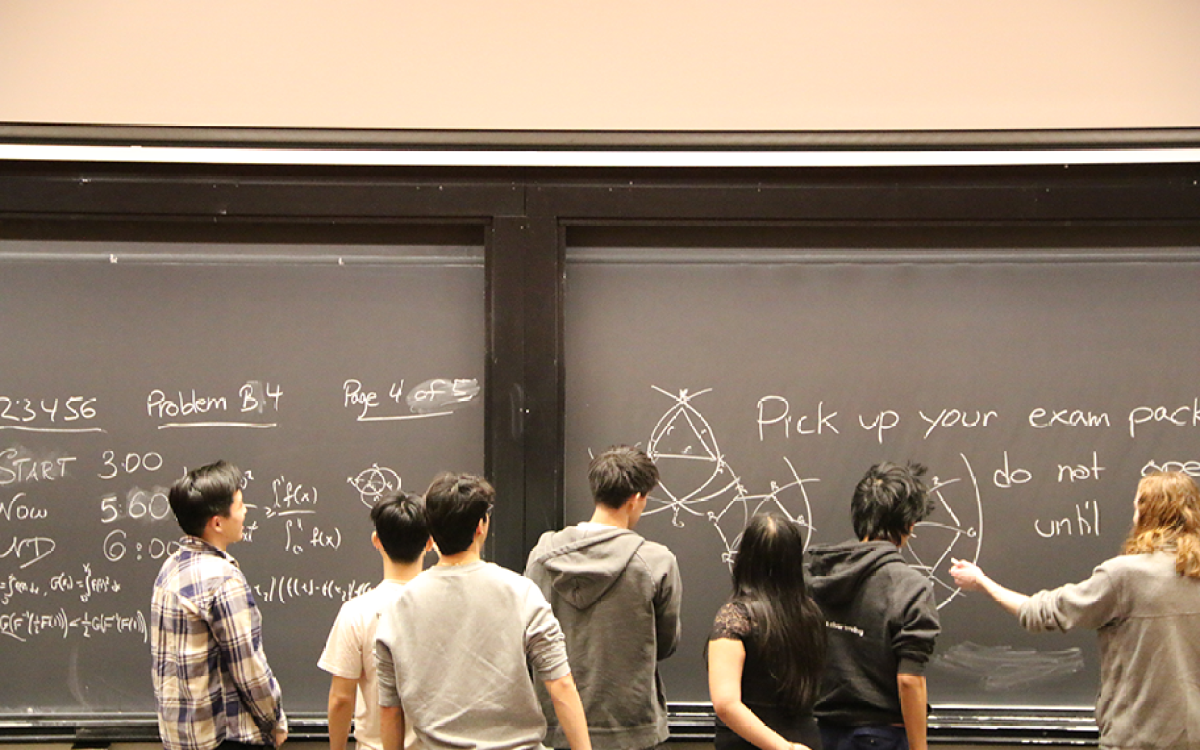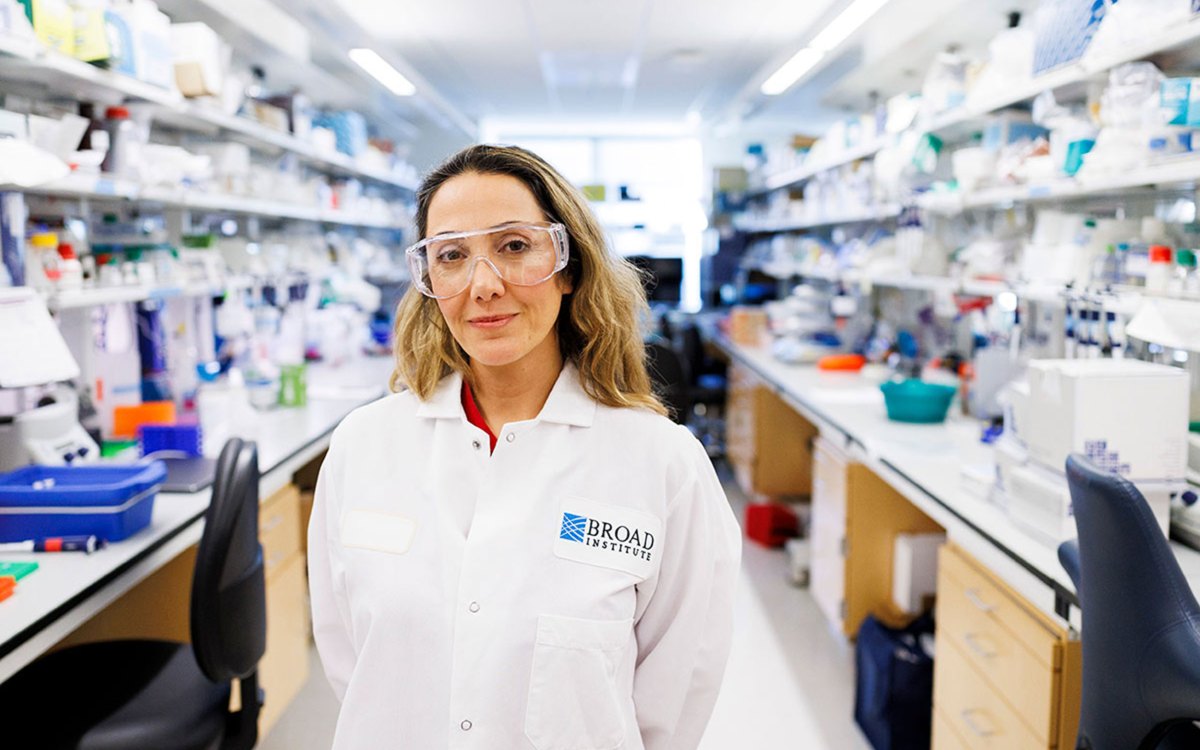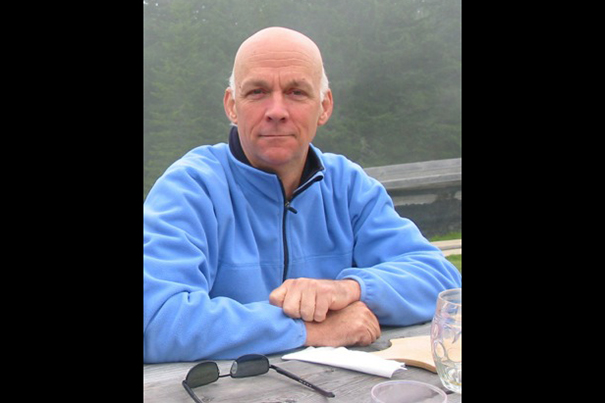
William Clark, Harvey Brooks Professor of International Science, Public Policy, and Human Development at Harvard Kennedy School, has co-authored a new book on sustainability. “Achieving more equitable and sustainable use of the Earth requires a great deal of working together,” he said.
Photo courtesy of William Clark
Pursuing sustainability
A Q&A on connecting science and practice, balancing conservation with use
United Nations Secretary-General Ban Ki-moon on Friday will welcome 130 heads of state who have pledged to sign the Paris Agreement, the global agreement on managing climate change. For William Clark, Harvey Brooks Professor of International Science, Public Policy, and Human Development at Harvard Kennedy School (HKS), sustainability is a global imperative and a scientific challenge like no other.
Clark sees the Paris Agreement as just one step, though an important one, in this urgent pursuit, as officials wrestle with how to meet the needs of a growing human population without jeopardizing the planet for future generations. He and co-authors Pam Matson of Stanford University and Krister Andersson of the University of Colorado at Boulder tackle that issue in a new book, “Pursuing Sustainability: A Guide to the Science and Practice.” By looking at sustainability as a means of alleviating poverty and enhancing well-being, the book highlights the complex dynamics of social-environmental systems, and suggests how successful strategies can be shaped through collaborations among researchers and practitioners.
Clark, who trained as an ecologist, said that while exhausting Earth’s natural resources would jeopardize future generations, sustainability could counter that. The goal is to find a healthy equilibrium between human adaptation and natural evolution. Clark, the co-director of the Sustainability Science Program at HKS, spoke with the Weatherhead Center for International Affairs about building a more sustainable future.
GAZETTE: The terms “sustainability” and “sustainable development” are used in many different contexts. How have these terms evolved?
CLARK: The framework we build up in this book starts with the core idea of sustainable development as articulated by Dr. Gro Brundtland in the “Report of the World Commission on Environment and Development” [presented to the U.N. General Assembly in 1987]. It’s interesting that the report never used the word “environment” in its canonical definition of sustainability. Rather, they concluded that “humanity has the ability to make development sustainable: to ensure that it meets the needs of the present without compromising the ability of future generations to meet their own needs.” It wasn’t that they didn’t think environment was important, but they understood that in many senses the environment was a means to an end. The end was improving people’s lives — people’s lives here and now, but not at the expense of future generations, and not at the expense of people on the other side of the fence on whom you throw your garbage.
GAZETTE: So 30 years ago the Brundtland Commission recognized the importance of sustainable energy and sustainable management of forests. But doesn’t sustainable development today have a much broader agenda? How did it evolve?
CLARK: Certainly environmentalists were behind the initial push for sustainability issues. But environmental scientists in the scholarly community also constituted some of the most enthusiastic cheerleaders for the Brundtland Report. So the sustainability movement became a very green movement — protect the forests, protect land from soil erosion, and so on. It became very easy to lose track of the fact that the World Commission on Environment and Development — to its eternal credit — did not just sit in offices in Geneva or Washington, but went around the world meeting with people in cities, in towns, in poor communities, in rich communities, asking about people’s concerns for the future. What they learned was that people were ultimately concerned about people — their own well-being as well as that of their grandchildren and neighbors — but that many understood that environmental stewardship was an essential, if often neglected, means for achieving such inclusive human well-being.
GAZETTE: Did the World Commission on Environment and Development set a new precedent for integrating policy-making with input from scientists?
CLARK: Emphatically, yes. This was a group of essentially politically attuned people. There were no “techies” on the Brundtland Commission — and by techies I mean scientists, academics, researchers. The members were all recruited because of their experiences in the world. Dr. Brundtland’s view was that if we can get the political and business leaders on board, then we’ve got something that can move to a high level on the international agenda, at which point the techies will be essential to help us achieve our politically defined goals.
GAZETTE: The Paris Agreement is supposed to add structure to current global efforts to reduce greenhouse gas emissions. In some ways it seems that human well-being used to be secondary to planetary health, when really the two are inseparable.
CLARK: Right. Brundtland recognized that if we started with the techies, they’d be providing all sorts of potentially useful pieces to the sustainability puzzle, but they wouldn’t frame the whole picture and wouldn’t gain the endorsement of the international political community. After the Brundtland Commission reported in 1987, scientists seized their opportunity to begin fleshing out the sustainability agenda, a lot of which became about greening. None of that is wrong, but in many ways it lost some of its top table legitimacy in the political realm. Why should a country on the edge of starvation join an international movement on greening? After all, people in such countries already know (better than we do) that you need to treat your environment carefully because that’s the source of most of a poor person’s wealth and resources.
GAZETTE: What was the next phase in the evolution of sustainability thinking? What was the shift from greening to linking Earth’s health with human well-being?
CLARK: Scholarship advocating a return to thinking of sustainability in terms of human well-being began to re-emerge over the last 15 to 20 years with strong contributions from the World Bank and the U.N. organizations. They began by pushing for a reformulation of how we should think about human progress and its barriers, framing things around this idea of well-being. Human well-being was something that people have always thought about. But these scholars — David Pearce, Kirk Hamilton, Karl-Göran Mäler, and, above all, Partha Dasgupta — brought well-being back into the middle of the sustainability debate. From this campus, Nobel laureate and Weatherhead Center faculty associate Amartya Sen extended the notion of well-being to encompass dimensions of human capabilities and freedom.
GAZETTE: What is a good analogy for the concept of “core assets” that you write about in “Pursuing Sustainability”?
CLARK: There’s an analogy I use in my Sustainable Development course at Harvard College. When you’re flying in an airplane across the Atlantic, they dutifully feed you information on two of the three important points about your flight. One, is the plane flying in the right direction toward your chosen destination? Two, they tell you of the airplane’s speed, so you will know whether you are getting to your destination reasonably fast. What they don’t tell you is the third piece of information, which you just assume someone in the cockpit is thinking about: Does the plane have enough fuel to reach the chosen destination on the chosen course at the chosen speed? So the fuel in the tank is really the key to knowing whether our present course is sustainable for the duration of the journey. If not, we need to adjust where we’re going, or how fast we push the airplane.
GAZETTE: And flying across the Atlantic, executing an emergency landing, and refueling is probably difficult if not impossible.
CLARK: Definitely. It’s not a perfect analogy, but the broader notion for the sustainability argument is knowing the set of assets that are the equivalent of the fuel in the tank.
So in our book, we examine the different kinds of fuel in our development tank. There are the environmental resources, what we call natural capital. There’s manufactured capital that most reports on GNP are about — our buildings, our roads, our houses — the stuff we have actually installed and produced. Then there’s human capital, which is the number and distribution of people, their health, their education.
And in addition to those three tangible assets are two other sets of really important but intangible assets in the tank. One is social capital, made famous by Weatherhead Center faculty associate Robert Putnam. It explores our ability to work with one another to achieve our common purpose: rules, laws, treaties, and the norms of what constitutes appropriate behavior in a crowded world. And finally, there’s knowledge capital, which is what we actually know about the world. It’s not what individuals know, like the particular set of skills you or I have learned — that gets included in human capital. If you or I defect to planet Zoran tomorrow, things like calculus or the English language stay behind in knowledge capital.
Some knowledge capital is universally accessible, but most of it is accessible only to subsets of people because it’s privatized, patented, or copyrighted, or because it’s classified and, therefore, secret. Knowledge capital can also be inaccessible simply because you don’t have the education or the manufactured capital to make use of it.
GAZETTE: What are the roles for science and scientists in promoting sustainable development?
CLARK: We explore many contributions throughout the book. In general, however, the role of science includes helping society to see where present trends are taking us, to discover or design new technologies and policies that might change our course, and to evaluate the possible tradeoffs and implications of implementing such alternatives.
We’ve tried to engage the frontiers of sustainability science in the book, but to do so in a broadly accessible way, illustrating fundamental concepts with a core set of case studies that we use throughout the book. These studies show that scientists also need to consider the knowledge of those who are the intended beneficiaries of a sustainable development intervention, like the farmer or cracking plant operator who draws on years of practice and knows about local conditions.
Who’s to say that a seed tested in the lab or even in the field will work on a particular farm? We scientists, if we insist on being the only experts engaged in the pursuit of sustainability, often get the seed wrong because we don’t know about a certain local fungus or how the seed performs under drought. But when we present our scientific selves as the only real experts, we also subtly undermine the knowledge and standing of that experienced practitioner. The proper and effective role of scientists is as collaborators with local experts in the mobilization of useful knowledge for sustainable development.
GAZETTE: There are plenty of hard questions about how effective diplomatic tools such as the Paris Agreement and the Sustainable Development Goals will be. Why is governance important for sustainable development?
CLARK: Governance, in general, is about how we work together to achieve goals we can’t achieve on our own. Sustainability is an issue in large part because what we each do to advance our own well-being has significant implications for the ability of others to advance their well-being. This can be because of tragedies of the commons or because our production and consumption activities pollute people in other places or generations, or because we deplete assets like soils and infrastructure that are no longer available for our grandchildren. Achieving more equitable and sustainable use of the Earth therefore requires a great deal of “working together” — of governance.
We have learned that effective governance for sustainability needs to be what our colleague, the late Lin Ostrom, called “polycentric”: grounded in the particulars of local conditions and contexts, but utilizing regional and global accords to empower and facilitate local action. Because the social-environmental systems we are trying to manage for sustainability are so complex and poorly understood, governance for sustainability also needs to be adaptive governance. Policies and technologies need to be treated as experiments, with careful monitoring and transparent reporting so that we can quickly stop doing stuff that turns out not to work, and rapidly spread the news about stuff that does.
GAZETTE: How do you determine whether or not sustainable development is successful given the complex dynamics of social-environmental systems?
CLARK: Improving inclusive well-being is the goal of sustainable development, but given the variety of ways that different people define their own well-being, it’s a hard quantity to measure and almost impossible to forecast.
It turns out that under a range of circumstances, well-being is tracked by what I refer to as the “amount of fuel in the tank” — that is our stock of capital assets. We can therefore measure how well we are doing in achieving our ultimate sustainability goal by designing and monitoring a suitable fuel gauge.
Given the different sorts of fuel that matter for sustainability — natural capital, manufactured capital, human capital, and the rest — designing an appropriate fuel gauge turns out to be tricky. In principle, however, we know that we are trying to estimate the utility or the social value of all the assets in the tank. And in practice, progress is being made: The U.N.’s “Inclusive Wealth Report” periodically estimates and reports the aggregate social value of a country’s productive assets, and thus whether their current development paths are sustainable or not. The “inclusive wealth” metrics of our asset stocks are far from perfect, but so are the “airspeed” metrics like GNP that societies have misused to plot their progress.
GAZETTE: How we deal with the challenge of climate change is surely a big part of how we deal with the broader challenge of sustainability. If we want decent odds of meeting the Paris Agreement target of staying below 2 degrees Celsius of global warming, then won’t countries need to make some radical changes?
CLARK: Absolutely. We argue in the book that it’s essential — even if hard for scientists — to recognize that at its core, a sustainable development is a hugely redistributive agenda. It is saying that business as usual enhances the well-being of a few of the most fortunate today at the expense of people elsewhere or in future generations. Breaking this pattern requires a fundamental realignment of norms and power, inspired by what Amartya Sen calls “informed agitation.” We need all the agitators we can get. We also need scientists, scholars, and inventors to help empower those agitators with the best-informed arguments and options possible. This means urging more and more scholars — scientists, humanists, engineers, doctors — to throw themselves into the active pursuit of knowledge that is useful to promote sustainability. But these scholars need to understand that in seeking to link their knowledge to practice, they are entering a very different world than the one they inhabit in the sequestered academic pursuit of knowledge for its own sake. They will be bucking the powerful interests behind the status quo, and should expect to be attacked and vilified at least as much as the avowed agitators they are trying to support.
This interview has been edited for length and clarity.
